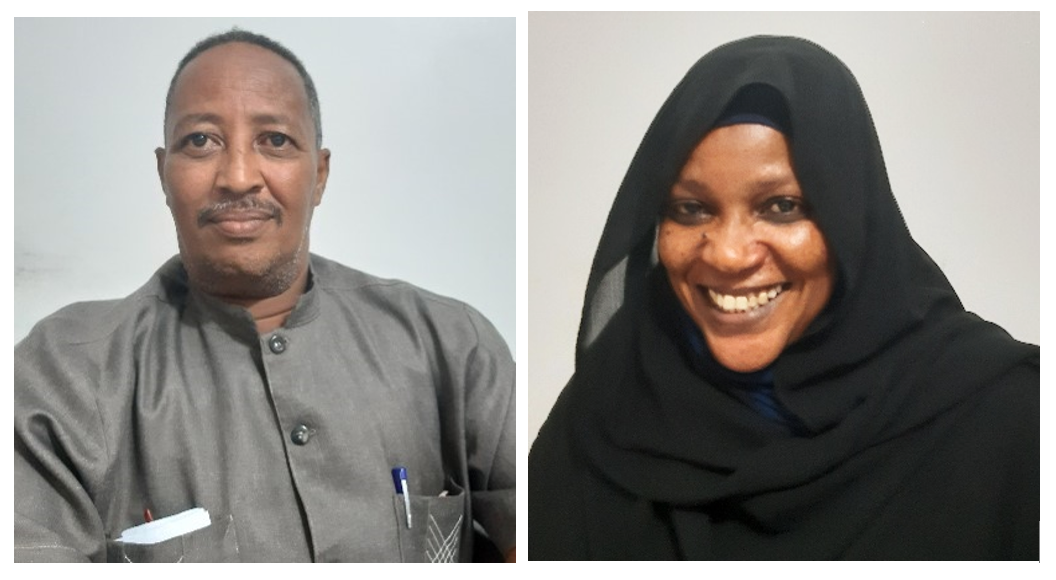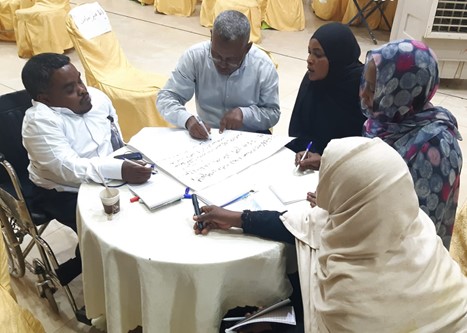Hisham and Buthyna, our co-trainers in the ‘We Are Able!’-programme in Sudan, were caught by surprise by the sudden violence that broke out in the country on the 15th of April. With hundreds of people killed and thousands fleeing the capital, Hisham is now helping refugees in Gedaref while Buthyna is stuck in Saudi Arabia.
Since the outbreak of the violence, caused by the fighting between the Sudanese army and paramilitary forces (RSF), hundreds of people were killed, 200,000 fled to neighbouring states, and 700,000 are displaced inside the country. The violence has wholly uprooted the life of Hisham and Buthyna. With the activities of the ‘We are Able!’-programme on a temporary hold, Hisham has joined voluntary actions to support internally displaced persons (IDPs) in Gedaref. Buthyna, who was pilgriming in Mecca at the time the violence broke out, is unable to return to the country.
Although Gedaref has been mostly spared from the fighting between the army and the RSF, the city currently hosts high numbers of IDPs from Khartoum. This has resulted in high pressure on local service delivery such as medical care and transportation. This adds up to the already weak electricity services, the halt on banking transactions, the restricted access to the Internet, the overcrowded markets and the high prices of food. Gedaref is also a crossing point for many foreign migrants who are trying to return to their countries through the Galabat border crossing with Ethiopia and need support in different ways.

Hisham is the head of the People with Disability Union in Gedaref and a financial officer at Gedaref municipality. Next to that, he is a prominent activist within the disability movement. Buthyna is a teacher in Gedaref and is responsible for training and capacity building at the Ma’an Civil Society Network, an association of nine civil society organisations promoting the rights of women and people with disabilities. Both are part of the ‘We Are Able!’- Training of Trainers-programme, that supports Sudanese trainers in developing their trainer skills and increasing their knowledge about inclusive governance.
Before the war broke out, we had an interview with Hisham and Buthyna about their activities in the ‘We Are Able!’-programme. They both stressed the importance of creating a better understanding by the local authorities about the needs of persons with disabilities and about ways to approach and address them. They do this by engaging local authorities and organisations for people with disabilities in training activities.
Buthyna: “In the training, I discuss the concept of social exclusion and the barriers we put in place. This is not only to make the authorities aware but also helps people with disabilities to identify them and address them better”. Hisham: “We also stress that for inclusive decision-making, equal access to information for everyone is the first step”. Buthyna: “We do not only talk about decision-making processes but also develop strategies for people with disabilities to get engaged in the process”. Hisham: “Organisations for people with disabilities need to have a greater understanding of their role within the decision-making system. They need to be proactive in providing solutions and see them incorporated in the localities’ agendas”.
Hisham also highlights the importance of reaching a wide group of people, to not only find allies in their mission but also raise cross-cutting issues that affect communities as a whole, aiming for general well-being. But for the time being, all the training activities are put on hold and his first concern is to support the refugees from the war. We wish him a lot of success and hope that Buthyna will soon be able to return to her country.

Learn more about We Are Able!
Find out more about the We Are Able! Programme.
